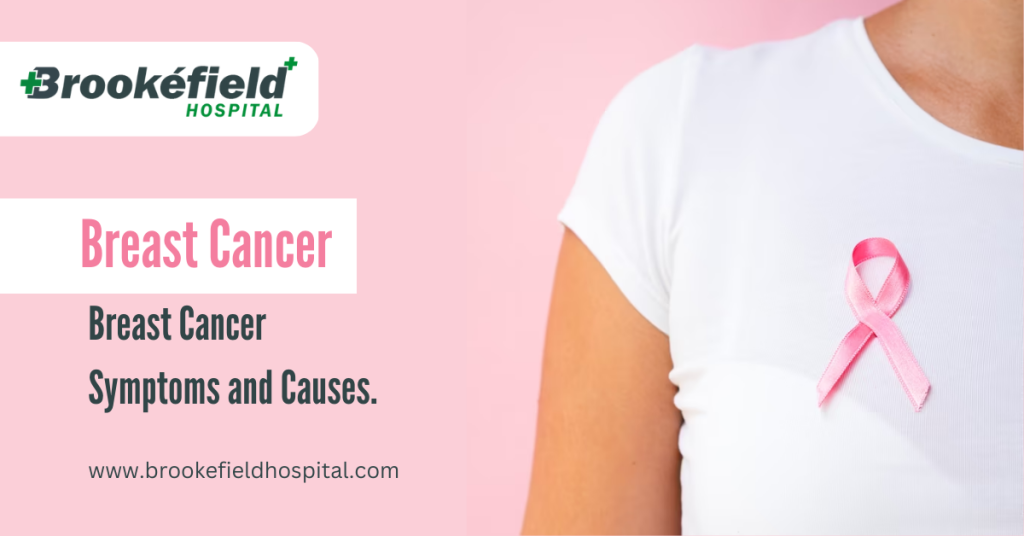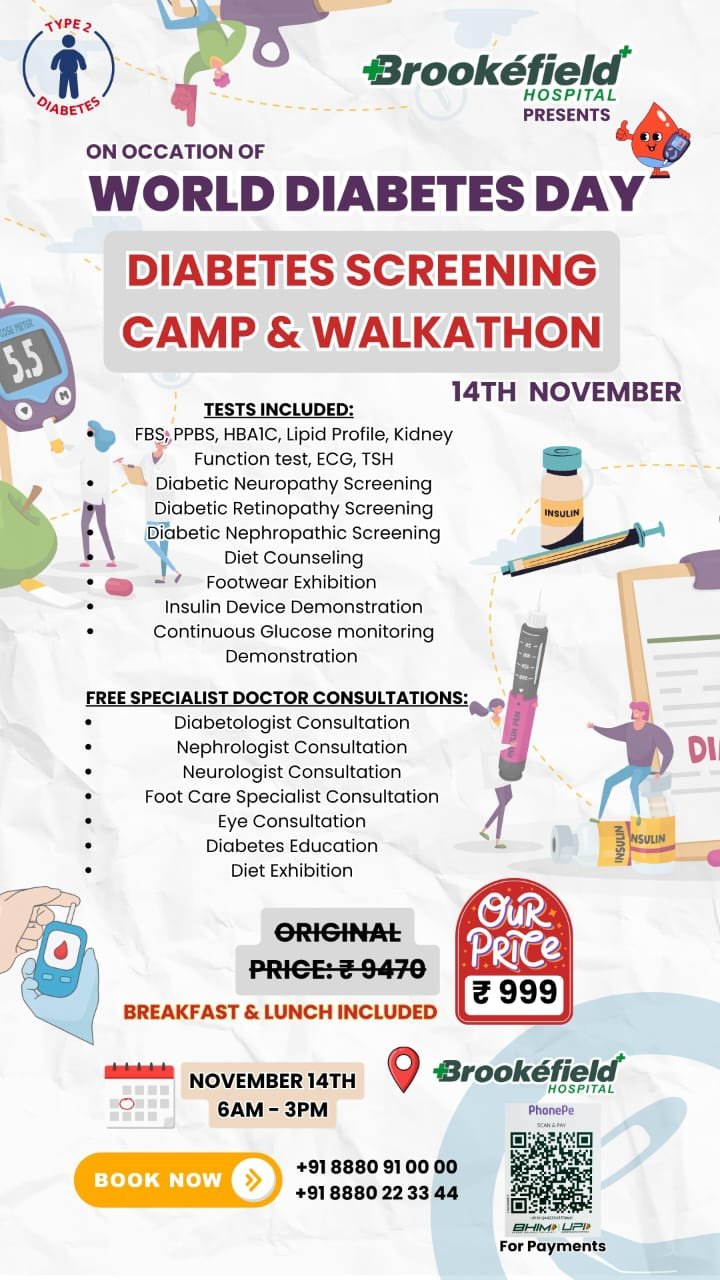Breast cancer is a type of cancer that develops in the cells of the breast. It is one of the most common types of cancer in women worldwide, and it affects men as well. The American Cancer Society estimates that in 2023, there will be approximately 281,500 new cases of invasive breast cancer diagnosed in women in the United States. Breast cancer is a serious disease that can be life-threatening if not treated promptly.
This article will discuss the causes, symptoms, and treatment of breast cancer. We will also answer some frequently asked questions about breast cancer.
Causes of Breast Cancer
The exact cause of breast cancer is unknown, but researchers believe that a combination of genetics and environmental factors can increase the risk of developing breast cancer. Here are some common causes of breast cancer:
- Age: The risk of breast cancer increases as a woman gets older. Most breast cancers are diagnosed in women over the age of 50.
- Genetics: Women who have a family history of breast cancer are at a higher risk of developing the disease. About 5-10% of breast cancers are caused by inherited gene mutations.
- Hormones: Women who have been exposed to high levels of estrogen over a long period of time are at a higher risk of developing breast cancer.
- Radiation: Women who have undergone radiation therapy to the chest area for other medical conditions are at a higher risk of developing breast cancer.
- Lifestyle factors: Obesity, alcohol consumption, and lack of physical activity can increase the risk of developing breast cancer.
Symptoms of Breast Cancer
The symptoms of breast cancer can vary from person to person. Some women may not experience any symptoms at all, while others may have multiple symptoms. Here are some common symptoms of breast cancer:
- A lump in the breast or armpit that is hard and painless
- Changes in the size or shape of the breast
- Nipple discharge or inversion
- Skin changes, such as redness or dimpling
- Pain in the breast or nipple that does not go away
It is important to note that not all breast lumps are cancerous. However, if you experience any of these symptoms, you should see your doctor immediately for a proper diagnosis.
Diagnosis of Breast Cancer
If you have symptoms of breast cancer, your doctor may recommend some tests to diagnose the disease. Here are some common diagnostic tests for breast cancer:
- Mammogram: A mammogram is an X-ray of the breast that can detect lumps or abnormalities in the breast tissue.
- Ultrasound: An ultrasound uses sound waves to create images of breast tissue.
- Biopsy: A biopsy is a procedure in which a small piece of tissue is removed from the breast for examination under a microscope.
Treatment of Breast Cancer
The treatment of breast cancer depends on the stage of the disease and the individual patient’s needs. Here are some common treatments for breast cancer:
- Surgery: Surgery is often the first line of treatment for breast cancer. The type of surgery depends on the size and location of the tumor.
- Radiation therapy: Radiation therapy uses high-energy radiation to kill cancer cells in the breast tissue.
- Chemotherapy: Chemotherapy uses drugs to kill cancer cells throughout the body.
- Hormone therapy: Hormone therapy is used to block the hormones that can cause some types of breast cancer to grow.
Type 2 Diabetes: Causes, Symptoms, and Treatment
FAQs
1. What is the survival rate for breast cancer?
The survival rate for breast cancer varies depending on the stage of the disease.
2. Can men get breast cancer?
Yes, men can get breast cancer, although it is rare. About 1% of all breast cancers occur in men.
3. Is there a way to prevent breast cancer?
While there is no surefire way to prevent breast cancer, there are some things you can do to reduce your risk, such as maintaining a healthy weight, limiting alcohol consumption, and getting regular exercise.
4. Is breast cancer genetic?
While some cases of breast cancer are genetic, most cases are not. However, women with a family history of breast cancer are at a higher risk of developing the disease.
5. Can breastfeeding reduce the risk of breast cancer?
Yes, breastfeeding has been shown to reduce the risk of breast cancer, particularly in premenopausal women.
Why Choose Brookefield Hospital?
Brookefield Hospital is a renowned Multispeciality Hospital in Bangalore that offers comprehensive breast cancer treatment. Here are a few reasons why you should consider choosing Brookefield Hospital for breast cancer treatment:
Advanced Treatment Options: Brookefield Hospital is equipped with the latest medical technology and treatment modalities for breast cancer. Their team of experienced oncologists uses a multi-disciplinary approach to develop a personalized treatment plan for each patient.
Experienced Oncologists: The hospital has a team of highly experienced oncologists who specialize in breast cancer treatment. They have years of experience in diagnosing and treating different stages of breast cancer, and are committed to providing the best possible care for their patients.
Comprehensive Care: Brookefield Hospital provides comprehensive care to patients with breast cancer, from diagnosis to treatment and follow-up care. The hospital has a dedicated team of nurses and support staff who provide emotional and psychological support to patients and their families.
Patient-Centered Approach: The hospital’s approach to breast cancer treatment is patient-centered, which means that the patient’s needs and preferences are taken into account while developing a treatment plan. This approach ensures that patients receive the care they need while also maintaining their quality of life.
Support Services: Brookefield Hospital provides a range of support services to patients and their families, including nutritional counseling, physical therapy, and support groups. These services help patients manage the side effects of treatment and improve their overall quality of life.
In summary, Brookefield Hospital is a top choice for breast cancer treatment due to its advanced treatment options, experienced oncologists, comprehensive care, patient-centered approach, and support services.
Conclusion
Breast cancer is a serious disease that affects millions of women worldwide. While the exact cause of breast cancer is unknown, there are some factors that can increase the risk of developing the disease. It is important to be aware of the symptoms of breast cancer and to seek medical attention if you experience any of them. If diagnosed early, breast cancer is treatable, and the chances of survival are high. If you have any concerns about breast cancer, speak to your doctor for more information.




